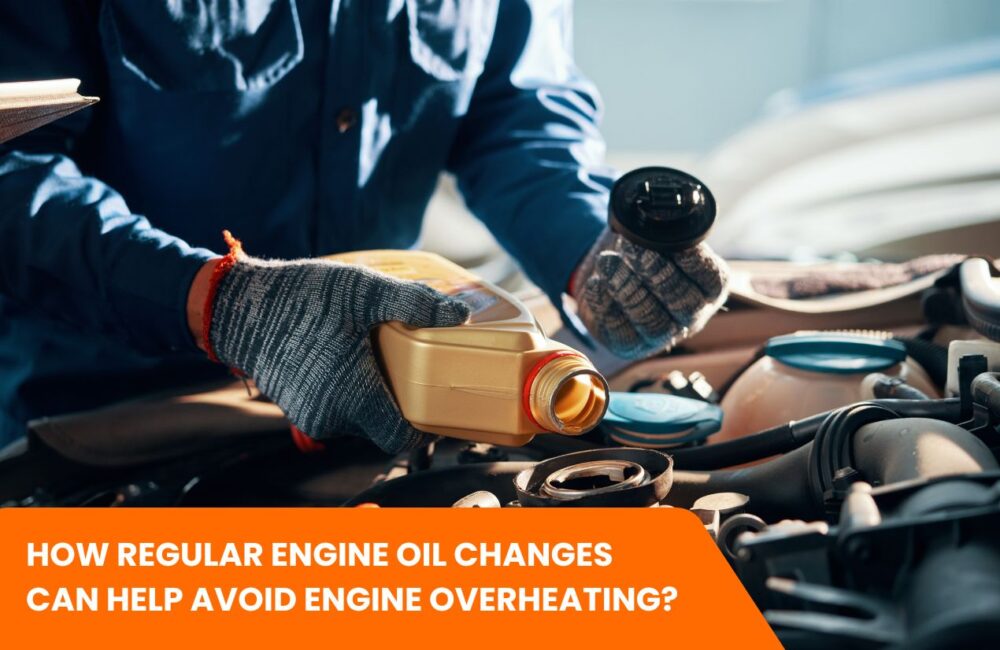Your car’s engine works tirelessly every time you turn the ignition. This non-stop operation creates intense heat, which must be managed effectively to avoid damaging the engine. One of the simplest and most crucial ways to manage this heat is through regular engine oil changes. While many car owners focus on tire rotations or brake checks, engine oil is often overlooked despite being essential for engine health and temperature regulation.
The Role of Engine Oil in Managing Heat
Engine oil serves multiple purposes within your vehicle’s engine. Besides lubricating the moving parts, it also acts as a cooling agent. As the engine runs, its parts generate friction, which produces heat. Engine oil absorbs this heat and helps dissipate it through the engine and oil pan, preventing any one area from becoming dangerously hot. Clean, high-quality oil can efficiently manage this heat, but once the oil degrades, its ability to cool diminishes significantly.
Why Engine Oil Deteriorates Over Time
As oil circulates through the engine, it gradually breaks down due to exposure to high temperatures, pressure, and contamination. It collects dirt, carbon deposits, and tiny metal particles from the engine’s internal components. Over time, this accumulation thickens the oil, reduces its ability to flow smoothly, and forms a sludge-like substance. This degraded oil cannot efficiently absorb or dissipate heat, leading to a rise in engine temperatures.
The Impact of Dirty Oil on Engine Temperature
Old or contaminated engine oil struggles to reduce friction between moving parts. This increased friction results in more heat being generated, which further accelerates the degradation of the oil itself. When sludge builds up, it can clog oil passages, reducing the oil flow to vital engine components. Without enough lubrication and cooling, these parts overheat and wear down quickly, increasing the chances of engine overheating and potential failure.
Consequences of Engine Overheating
Allowing your engine to overheat can lead to severe and costly damage. The most immediate impact is a reduction in engine efficiency. You may notice a loss of power, rough idling, or even engine knocking. If left unaddressed, overheating can warp engine components like the cylinder head or cause the head gasket to blow. These repairs are often expensive and could have been prevented with something as simple as a timely oil change.
Recognizing the Signs of Old Oil and Overheating
There are clear signs that your engine oil may need to be changed. If your engine feels hotter than usual or you notice a burning smell, it could indicate that the oil is not cooling the engine effectively. Dark, thick, or gritty oil on the dipstick is another sign that the oil has broken down. You may also see the oil change warning light or even the check engine light if the situation becomes more severe. Reduced fuel efficiency and unusual engine noises, like ticking or knocking, can also be symptoms of oil-related overheating.
How Often Should You Change Your Oil?
The frequency of oil changes depends on your vehicle’s make and model, the type of oil used, and your driving habits. Most cars using conventional oil require a change every 5,000 to 7,000 kilometers, while those using synthetic oil can often go 10,000 to 15,000 kilometers between changes. If you frequently drive in heavy traffic, in hot climates, or on dusty roads, you might need to change your oil more often. Always consult your vehicle’s owner’s manual for the manufacturer’s recommendations.
Why the Quality of Oil Matters
Not all engine oils are created equal. High-quality oils, especially full-synthetic variants, offer better thermal stability and resistance to oxidation. They maintain their lubricating properties even under extreme temperatures and are less likely to form sludge. Using a premium oil ensures that your engine stays cooler, even under heavy loads or long-distance driving. Investing in good oil may cost a bit more upfront but can prevent far more expensive repairs down the line.
Professional vs. DIY Oil Changes
While many car owners choose to change their own oil, having it done by a professional ensures the job is completed thoroughly. Professionals check oil levels, look for leaks, and inspect other fluid levels and engine components while they’re under the hood. If you prefer to do it yourself, make sure you follow proper procedures, use the correct type and amount of oil, and dispose of old oil responsibly. Whether done at home or in a garage, regular oil changes are what matter most.
The Long-Term Financial Benefits
Changing your engine oil regularly might seem like a small task, but it can have a big impact on your car’s performance and your wallet. Preventing engine overheating avoids expensive repairs like replacing the radiator, water pump, or even the entire engine. A well-maintained engine also runs more efficiently, giving you better mileage and fewer unexpected breakdowns. In the long run, routine oil changes are one of the most cost-effective ways to maintain your vehicle’s health.
Conclusion
Engine oil is the lifeblood of your car. Keeping it clean and fresh allows your engine to run smoothly and stay cool. Skipping oil changes or pushing them too far beyond schedule puts your engine at risk of overheating, which can lead to permanent damage and high repair bills. By making oil changes a regular part of your vehicle care routine, you not only protect your engine but also ensure a safer, smoother, and more reliable driving experience. Taking care of your engine today means avoiding costly repairs tomorrow and it all starts with a simple oil change.


